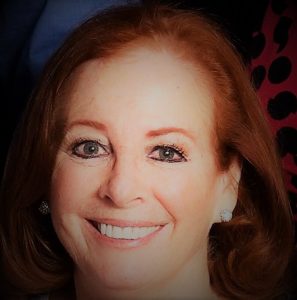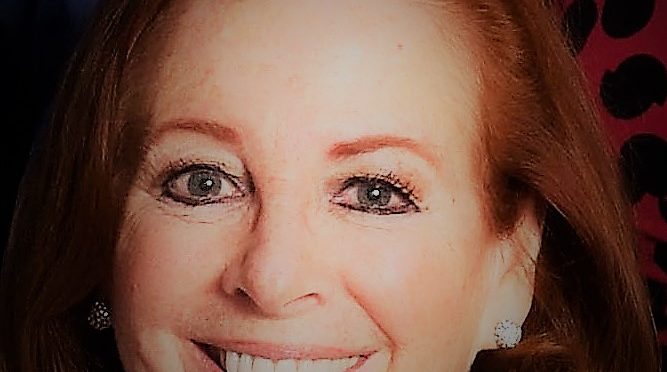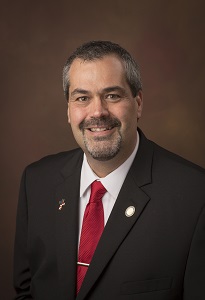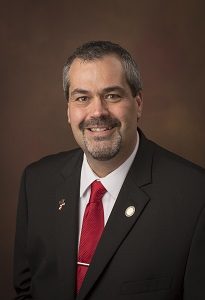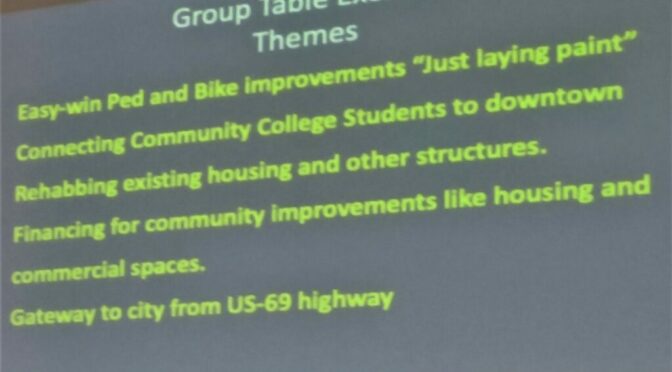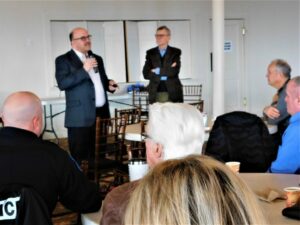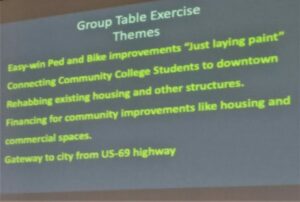FLOOR ACTION
Since Thursday was the last day for non-exempt bills to be heard by the full Senate, this week’s floor action is jam-packed. This section is divided by the date of final action, and full reports of floor action can be found in the corresponding Senate
calendars.
February 24
Debate occurred February 24 and Final Action on February 25
The following bills all received unanimous support and were passed Yea: 40 Nay: 0
SB 290 Updating how the securities commissioner may be appointed and removed.
SB 297 Requiring appraisal directives to require compliance with uniform standards of professional appraisal practice in the performance of property tax appraisals
SB 331 Authorizing department of corrections employees, local correctional or detention officers, judicial branch employees, and municipal court employees to have identifying information restricted from public access on public websites that identify home addresses or homeownership.
The following bill was passed Yea: 39 Nay: 1
SB 334 Modifying certain rules of evidence in the code of civil procedure related to authentication of records and documents.(I voted against this bill. It allows hearsay evidence to be introduced in certain court proceedings.)
The following bill was passed Yea: 38 Nay: 2
SB 390 Creates exceptions to the law requiring license plates be attached to the rear of motor vehicles. Authorizes placement of license plates on either the front or rear of a vehicle used as a concrete truck. An amendment was adopted to require the license plate for a vehicle used as a dump truck to be placed on the front of the vehicle and to require warning citations be issued for violations of that requirement until January 1, 2021.(I voted in favor of this bill.)
The following bills were passed Yea: 37 Nay: 3
SB 153 Providing for department of health and environment response operations for water and soil pollutant release, discharge or escape.(I voted against this bill. It will expand the authority of KDHE, and allow them to increase fines and penalties.)
SB 307 Updating approved types of personal flotation devices.(I voted against this bill. It expands the authority of KDWPT, and it removes some legislative oversight.)
SB 354 Amending the private and out-of-state postsecondary educational institution act clarifies the state board of regents’ authority and provides additional student protections and institutional accountability.(I voted against this bill. It expands the role of the Board of Regents and allows them oversight of private colleges.)
The following bill was passed Yea: 36 Nay: 3
SB 256 Repealing certain statutes regarding elections that pertain to the presidential preference primary; certain election-related contributions by corporations.(I voted against this bill. It removes the states ability to do it’s own enumeration for redistricting state and local offices. By doing this, the state will no longer have the ability to remove non-citiznes from the enumeration process, and would allow them to be counted in redistricting.)
February 25
Debate and Final Action occurred on February 25
The following bills all received unanimous support and were passed Yea: 40 Nay: 0
SB 42 Amending the meaning of the terms “rebate” and “interest” as used in the real estate brokers’ and salespersons’ license act.
Sub SB 126 Substitute for SB 126 by Committee on Utilities which exempts certain public utilities from Kansas income taxation and requires the filing of new retail electric rates in certain circumstances. An amendment was adopted to increase the amount of time a utility would have to file an application for new rates. This amendment also made small changes for clarification and technical purposes.
SB 264 Regarding the removal of persons from county appraiser eligibility list, maintained by the Director of Property Valuation, due to termination in one or more counties and for notification when a person no longer holds the office of appraiser. The bill stipulates the Director provide notice and opportunity for a hearing under the Kansas Administrative Procedure Act (KAPA) prior to removing their names from the eligibility list for certain acts or omissions. An amendment was adopted to remove a provision in the bill that would have specifically established termination from the office of county or district appraiser in one or more counties as one of the acts or omissions that would result in removal from the list.
SB 265 Requiring the state board of tax appeals to serve orders and notices by electronic means if requested by the party.
SB 272 Prohibiting county appraisers and the state board of tax appeals from increasing the valuation of county appraised property in valuation appeals.
SB 358 Providing that the highway patrol will provide the administration and oversight of state-certified ignition interlock manufacturers and their service providers.
The following bills all received unanimous support and were passed Yea: 39 Nay: 0
SB 294 As amended by the Committee on Assessment and Taxation, would establish, beginning in 2021, new notice and public hearing requirements for certain taxing subdivisions prior to property tax increases above a revenue-neutral rate and is intended to provide transparency in tax increases for Kansans.
The bill would not apply to school districts or to any taxing subdivisions receiving less than $20,000 annually in property taxes.
Senator Holland (D-Lawrence), offered two technical amendments that kept the spirit of the bill the same. Senator Holland’s third amendment passed and struck $20,000 and changed it to $5,000. Senator Berger and Senator Skubal (R-Overland Park), both offered amendments as well, but they failed by voice vote.
SB 339 Allows the Kansas Corporation Commission (KCC) to approve certain electric contract rates and associated cost recovery from all rate classes. An amendment was adopted to require the KCC to submit a biennial report, starting in January 2023, to the Legislature regarding utilities’ use of contract rates and discounted rates.(I am a cosponsor of this bill. I voted in favor of this bill.)
The following bill was passed Yea: 39 Nay: 1
SB 377 Designating a portion of K-7 as Senator Paul “Bud” Burke Memorial Highway.(I voted in favor of this bill.)
The following bill was passed Yea: 38 Nay: 1
SB 295 would provide that the appraised value of real property would not be increased solely as a result of normal repair, replacement, or maintenance of existing improvements on the property. Senator Tyson (R-Parker) intends the law to encourage, rather than discourage, property owners to maintain their investment rather than have concerns the work would increase their property tax bills.(I am a cosponsor of this bill. I voted in favor of this bill.)
The following bill was passed Yea: 38 Nay: 2
SB 254 Concerning requirements of publication of certain documents by the secretary of state; relating to session laws, the Kansas register, proposed amendments to the constitution of the state of Kansas, and Kansas administrative rules and regulations and guidance documents.(I voted against this bill. It gives the Secretary of State authority to set prices on certain published items without any oversight.)
The following bill was passed Yea: 29 Nay: 11
SB 266 Requiring appraisal courses for county appraisers and BOTA members to be courses approved by the Kansas real estate appraisal board.(I voted in favor of this bill.)
February 26
Debate and Final Action occurred on February 26
The following bills all received unanimous support and were passed Yea: 39 Nay: 0
SB 404 Creating a process to terminate the parental rights of a person whose sexual assault of another has resulted in the conception of a child.
SB 420 as amended, will require individuals convicted of taking pictures of others in a state of undress without their knowledge to be listed on the sex offender register. The bill was introduced at the request of Senator Julia Lynn (R-Olathe). In the Senate Committee hearing, a representative of the Johnson County District Attorney’s Office and four private citizens testified in support of the bill, stating such incidents are increasing and the bill would simplify the process for requiring registration for such offenders.
SB 427 Reviewing and continuing expiring exceptions to the disclosure of public records under the open records act.
SB 262 State board of tax appeals; changing time to request full and complete opinion to be based on the date of service.
SB 289 Updating the version of risk-based capital instructions in effect.
SB 383 Providing for the American Legion, Knights of Columbus and proud educator distinctive license plates and providing for lowered license plate commitments and costs prior to production.
SB 221 The bill would allow a patron of a club and drinking establishment to remove one or more containers of beer, domestic beer, and cereal malt beverage sold on licensed premises and served in refillable and sealable containers for consumption off the licensed premises. It would allow the same for retail licensees. An amendment was adopted to specify all alcoholic liquor, cereal malt beverages, and non-alcoholic malt beverages sold by licensees under the bill would be subject to the 10% tax on gross receipts from the sale of alcohol.
SB 284 Providing motor vehicle disability placards for school districts and interlocal cooperatives.
SB 373 Modifying the crimes of selling sexual relations, promoting the sale of sexual relations and buying sexual relations by changing terminology from “sexual relations” to “a sex act.”
SB 382 Amending the capital improvement state aid schedule to exclude U.S.D. No. 207, Fort Leavenworth.
SB 271 Repealing the sunset provision for the high-density at-risk weighting.
The following concurrent resolution received unanimous support and was passed Yea: 37 Nay: 0
SCR 1614 states the Senate and House of Representatives of the State of Kansas support Kansas farmers, ranchers, and agribusinesses in the Rattlesnake Creek subbasin in protecting their water rights through collaboration with the Quivira National Wildlife Refuge to find a solution to an impairment complaint filed with the Kansas Department of Agriculture Division of Water Resources. The resolution also states the State of Kansas commends the U.S. Fish and Wildlife service for seeking a collaborative, non-regulatory approach to resolving the impairment complaint regarding the Quivira National Wildlife Refuge.
The following bill was passed Yea: 39 Nay: 1
SB 337 Expanding the provision of the ACT college entrance exam and workkeys assessments to students enrolled in nonpublic schools.(I voted against this bill. While the description of the bill stated that it expands the number of students that will be able to take the ACT’s, the actual wording in the bill actually restricts those numbers. If this bill would have actually expanded the number of students that would be eligible to take the ACT’s, I would have voted in favor of this bill.)
The following bill was passed Yea: 37 Nay: 3
SB 308The controversial raw milk bill, SB 308, was brought to a hearing on the full Senate floor Wednesday. As the bill was written, then amended by committee, the sale of raw milk, and its advertisement is legal in the state. The bill describes certain language requirements for the advertisement and packaging of raw milk products, particularly related to the potential adverse health effects of consuming unpasteurized milk.
The bill also contains a technical amendment to broaden the definition of milk to include all mammals.(I voted against this bill. It adds unnecessary and burdensome regulations.)
The following bill was passed Yea: 25 Nay: 15
SB 381 Authorizing medical student and residency loan assistance to encourage the practice of obstetrics and gynecology in medically underserved areas of the state.(I voted against this bill. I originally supported this bill as it was introduced. I changed to opposing this bill after the Senate Education Committee amended the bill to expand on what types of abortion procedures and OBGYN who receives a tax payer funded scholarship can provide, and still be able to keep their scholarship.)
The following bill was passed Yea: 23 Nay: 15 Present and Passing: 2
SB 283 Authorizing sports wagering under the Kansas expanded lottery act. Six amendments were brought on the floor but only one passed.(I voted against this bill. I have seen first hand how the negative effects of gambling addictions can have on a person and their families.)
The amendment, brought by President Wagle, ensured that 2% of the state’s assessed tax, would be transferred to the Problem Gambling Additions Grant Fund. Senator Wagle found that although the provision was made in other areas of gaming laws, unclear phrasing of the law allowed the funds to be used for other purposes. The amendment added the 2% provision to sports wagering tax collections, like other gaming collections and also put guardrails in place to require Kansas leaders to use the money to help gambling addictions or to treat alcoholism, drug abuse, or other co-occurring behavioral health disorders.(This amendment passed on a voice vote. I voted in favor of this amendment.)
I submitted an amendment that would have used the new funds the state would receive from this bill, to be used to payoff KPER’s unfunded liability. This amendment failed on a roll call vote.
On roll call the vote was:
Yea – (11):
Billinger, Hilderbrand, Masterson, Miller, Olson, Petersen, Pyle, Rucker, Thompson, Tyson, Wilborn,
Nay – (24):
Alley, Berger, Bollier, Bowers, Braun, Denning, Doll, Estes, Faust-Goudeau, Francisco, Goddard, Haley, Hardy, Hawk, Hensley, Holland, Kerschen, Longbine, Lynn, McGinn, Skubal, Sykes, Taylor, Ware,
Present and Passing – (4):
Baumgardner, Givens, Pettey, Suellentrop,
Absent and Not Voting – (1):
Wagle,
Not Voting – (0):
February 27
Debate and Final Action occurred on February 27
The following bills all received unanimous support and were passed Yea: 39 Nay: 0
SB 253 Amending requirements for service of process on nonresident drivers and clarifying service of process on certain business entities.
SB 405 Amendments related to driving under the influence concerning motorized bicycle drivers’ licenses, ignition interlock devices and driving under the influence by any person less than 21 years of age.
SB 384 As amended the bill would require the Kansas State Department of Education (KSDE) and the Department for Children and Families (DCF) to prepare an annual academic report card on educational outcome data for foster care students. The bill would require the following data for foster care students to be included in the academic report card: graduation rate; number and percentage promoted to the next grade level; number and percentage suspended during the school year; number and percentage expelled during the school year; state standardized assessment scores and number and percentage meeting academic standards; number enrolled in preschool-aged at-risk programs; Kansas Preschool Pilot program, or early childhood special education program under the federal Individuals with Disabilities Act; total number of foster care students in the state; and how many students are enrolled in school districts and how many are enrolled in accredited nonpublic schools.
SB 371 Requiring posting of a human trafficking awareness notice approved by the attorney general in certain businesses and public places.
SB 319 Clarifying that bond agents are required to return certain people released on bond to the court in the county where the bond was issued.
SB 275 Eligibility requirements for restricted driving privileges and elimination of additional 90-day wait period of suspended or revoked licenses.
SB 267 Clarifying that a violation of the statute requiring secured vehicle loads is a traffic infraction.
SB 251 Allow businesses to elect to file certain business reports with the secretary of state annually, biennially or triennially.
SB 424 Amending certain provisions regarding business entities and business filings with the secretary of state, including business name, certain addresses, making revisions to certain statutory citations and extending the effective date of certain provisions pertaining to series of a limited liability company.
SB 292 Granting the commissioner of insurance flexibility in assessing certain excess lines coverage penalties.
SB 355 Prohibiting psychiatric or psychological examinations of victims of crimes.
SB 374 Allowing employees of salvage vehicle pools to perform vehicle identification number inspections.
The following bill was passed Yea: 37 Nay: 2
Sub SB 335 Substitute for SB 335 by Committee on Education – Authorizing school districts to pay the tuition for a student’s dual or concurrent enrollment in a post secondary educational institution and requiring a tuition waiver for foster children who are dually or concurrently enrolled.(I voted in favor of this bill)
The following bill was passed Yea: 36 Nay: 3
SB 345 Establishing requirements for the effective disposal of industrial hemp.(I voted no on this bill. This bill expands the role of the Department of Ag, and adds more fees, regulations, and licensing.)
The following bill was passed Yea: 35 Nay: 3
SB 230 Clarifying the authority of the Kansas commission for the deaf and hard of hearing.(I voted no on this bill. This bill will expand the role of DCF, and fees, regulations, and licensing.)
The following bill was passed Yea: 35 Nay: 4
SB 152 Authorizing the secretary of health and environment to collect underground injection control program fees and redirecting water well license program fees.(I voted no on this bill. This bill will expand the role of KDHE, and fees, regulations, and licensing.)
The following bill was passed Yea: 32 Nay: 6
SB 402 Updating producer licensing statutes pertaining to appointment, fees, licensing, renewal dates, continuing education, suspension, revocation and denial of licensure and reinstatement.(I passed on this bill. This bill directly effects my business and could be perceived as me having a conflict of interest on how I would have voted on this issue.)
The following bill was passed Yea: 31 Nay: 8
SB 380 Restricting cities and counties from imposing certain regulations and fees on a video service provider for the provision of communications service through a micro wireless facility.(I voted in favor of this bill.)
SB 293 Transferring duties concerning registration for charitable organizations and the address confidentiality program (safe at home) from the secretary of state to the attorney general.
Since Thursday was the last day for non-exempt bills to be heard by the full Senate, this week’s floor action is jam-packed. This section is divided by the date of final action, and full reports of floor action can be found in the corresponding Senate
calendars.(I voted against this bill. This bill adds fees, and increases fees for charitable organizations.)
